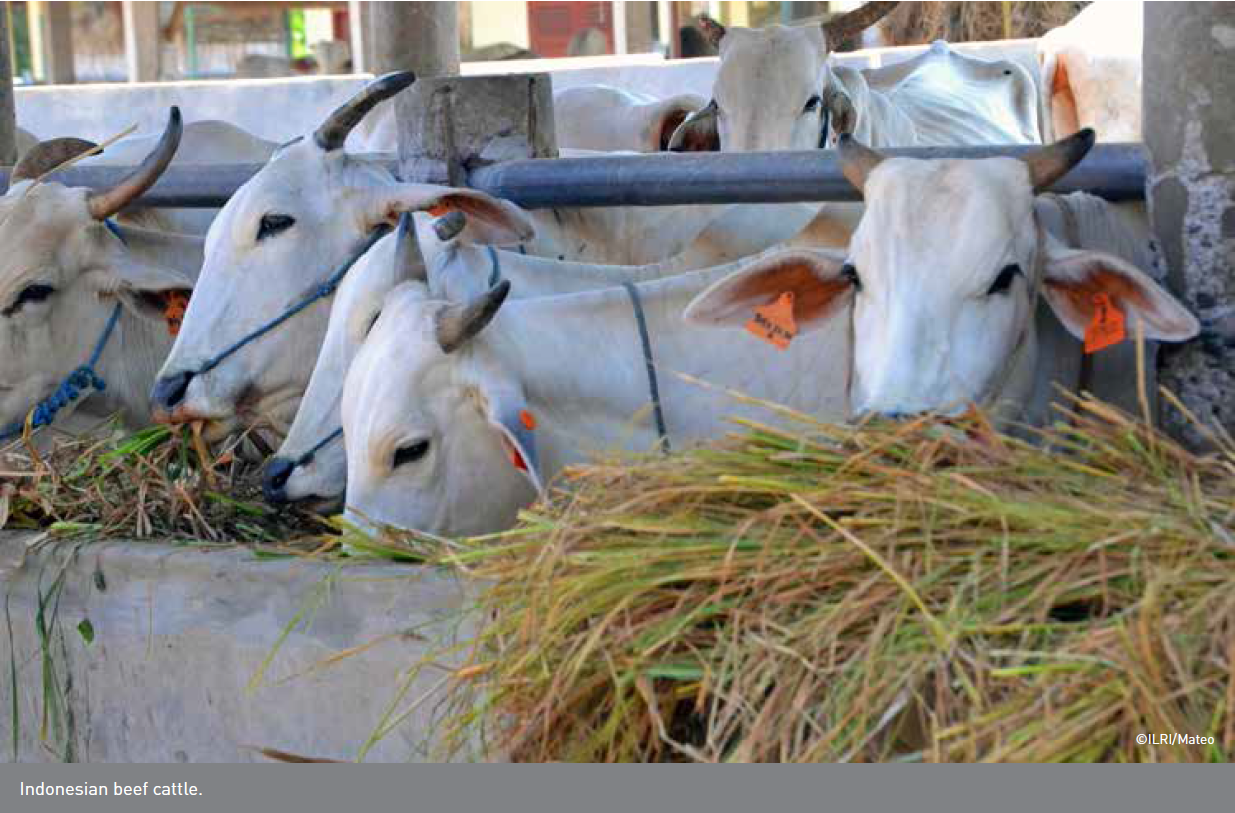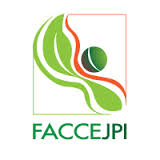The Organisation for Economic Co-operation and Development (OECD) – through its Co-operative Research Programme (CRP) – has opened a call for applications to fund travelling research fellowships and to sponsor international conferences (such as workshops, congresses and symposia) on cutting edge issues in agriculture, food, fisheries and forestry in 2018. The CRP operates under three themes – Managing Natural Capital for the Future, Managing Risks in a Connected World, Transformational Technologies and Innovation. More information, including full details of the application process and selection criteria for both the fellowships and conference support, is available on the website: www.oecd.org/agriculture/crp
A joint project is underway to help countries improve the way they measure, report and verify greenhouse gas emissions from livestock. Each country currently has different methods of measuring, reporting and verifying (known colloquially as ‘MRV’).
The project is divided into four steps:
- Characterise international requirements for MRV
- Identify the approaches countries are currently taking
- Conduct a survey to identify the reasons for these approaches
- Make recommendations
It is hoped that a first draft of findings will be published in February 2017.
The joint project is being implemented by the Livestock Research Group of the Global Research Alliance and our Partners CGIAR’s Research Program on Climate Change, Agriculture and Food Security (CCAFS), and the Food & Agriculture Organisation (FAO), with support from UNIQUE Forestry & Land Use, and the New Zealand Government.
Read the full article in the December 2016 LRG newsletter
The latest newsletter for the Joint Programming Initiative on Agriculture, Food Security and Climate Change (FACCE-JPI) can be viewed here
Of particular interest to GRA Members who submitted proposals or who participate in both the GRA and FACCE-JPI, in this newsletter the FACCE-JPI notes that the ERA-Gas call for transnational research projects on monitoring & mitigation of GHGs from agri- and silvi-culture generated 28 pre-proposals with 169 partners. Evaluations will be available 14 October 2016.
The FACCE-JPI comprises 22 countries committed to building an integrated European Research Area addressing the interconnected challenges of sustainable agriculture, food security and impacts of climate change. Research is steered to support sustainable agricultural production and economic growth and contribute to a European bio-based economy, while maintaining and restoring ecosystem services under current and future climate change.
Read more about FACCE-JPI here
We are pleased to inform that our MAGGnet article “MAGGnet: An international network to foster mitigation of agricultural greenhouse gases” has been published on Taylor & Francis Online. The article summarises MAGGNet’s purpose, work to date and overall goal to produce an inclusive, globally shared meta-database focussed on the science of GHG mitigation.
MAGGnet, the Managing Agricultural Greenhouse Gas Network, was initiated as a multi-national research effort facilitated by the GRA. By employing a user-friendly spreadsheet template, MAGGnet seeks to compile metadata from experimental sites throughout the world where greenhouse gas fluxes and soil carbon dynamics are monitored.
Find out more about MAGGNet here
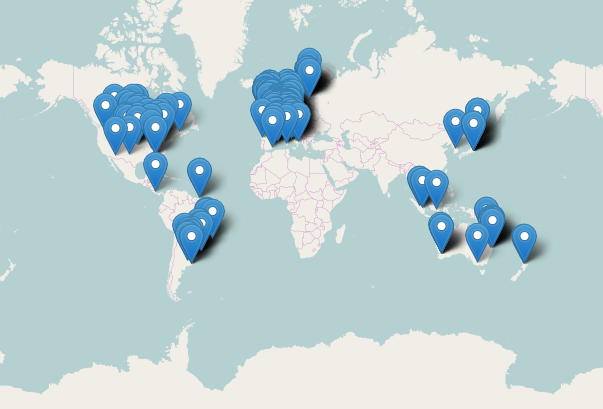
The GRA’s International Research Collaboration Working Group (IRCWG) will hold its first physical meeting next month in Brussels, Belgium. The IRCWG was formed by Members of the GRA as an outcome from the 2015 Council meeting to assist in the preparation of the GRA’s 5-year strategic plan and to support the GRA Research Groups and collaborative research activities. The group will meet over two days, June 13-14, and will be hosted by the European Commission.
Any GRA Member who is interested in participating in the meeting and the Working Group should contact the Secretariat ([email protected]).
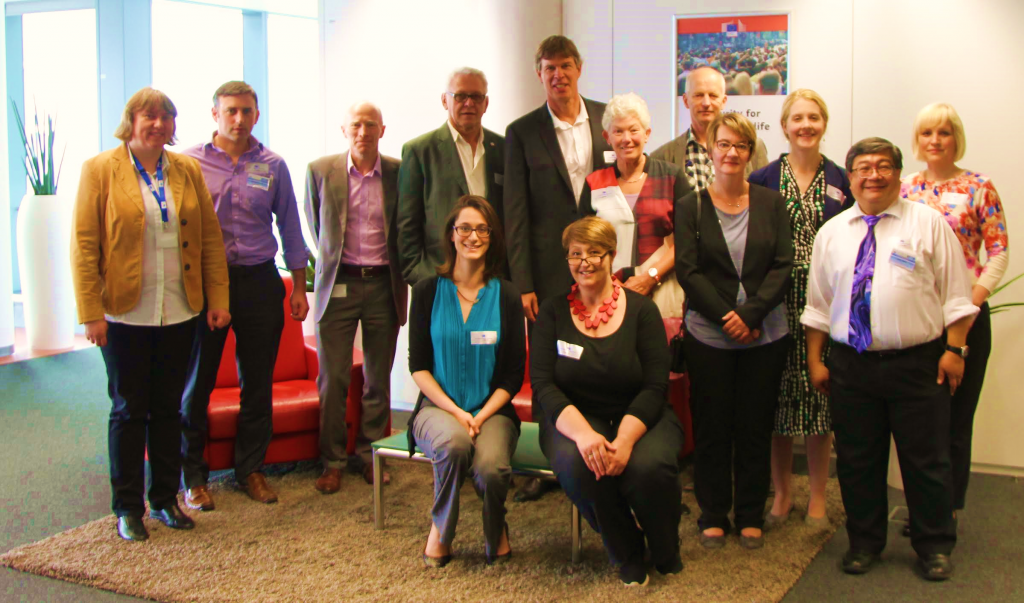
The New Zealand Government has opened a fourth round of the Fund for Global Partnerships in Livestock Emissions Research (GPLER), in support of the Global Research Alliance on Agricultural Greenhouse Gases (GRA).
The GPLER invests in collaborative projects that advance innovative, cost-effective and sustainable solutions to reducing greenhouse gas emissions from pastoral livestock farming. This round is valued at over NZD$9 million and seeks projects in response to research challenges spanning rumen function, nitrous oxide emissions, soil carbon change, and improvements in farm-system emissions intensity.
Applications are welcomed from multi-disciplinary teams that pool the best international expertise. Any GRA member country can lead bids but there are minimum requirements for New Zealand participation that must be met.
The deadline for applications is 14:00 NZST, Friday 8 July 2016. Projects are expected to start by July 2017 and conclude by June 2020. For more information on the GPLER, including downloading the Rules & Guidelines for Applicants and the pre-proposal application form, please see https://www.mpi.govt.nz/funding-and-programmes/farming/global-partnerships-in-livestock-emissions-research/
‘Reducing Enteric Methane for Improving Food Security and Livelihoods’, a project implemented by the Food and Agriculture Organisation (FAO) and New Zealand Agricultural Greenhouse Gas Research Centre in association with the Global Research Alliance (GRA), has a new website where you will soon be able to see results from the project. The project aims to identify system specific technologies and interventions to increase ruminant productivity and reduce the emissions intensity of enteric methane. Ruminant production systems with low productivity lose more energy per unit of animal product than those with high productivity. The solution is to identify and implement low cost or no cost technologies that offer win-win scenarios to increase productivity across production systems, strengthen farmer livelihoods, and increase food security, while reducing methane emissions intensity.
We are pleased to announce that we have added more Member Country pages to the GRA website. Have a look at the links at http://globalresearchalliance.org/community/ to learn about agricultural GHG mitigation and Global Research Alliance involvement for Argentina, Malaysia and Poland. More country pages are also to come! 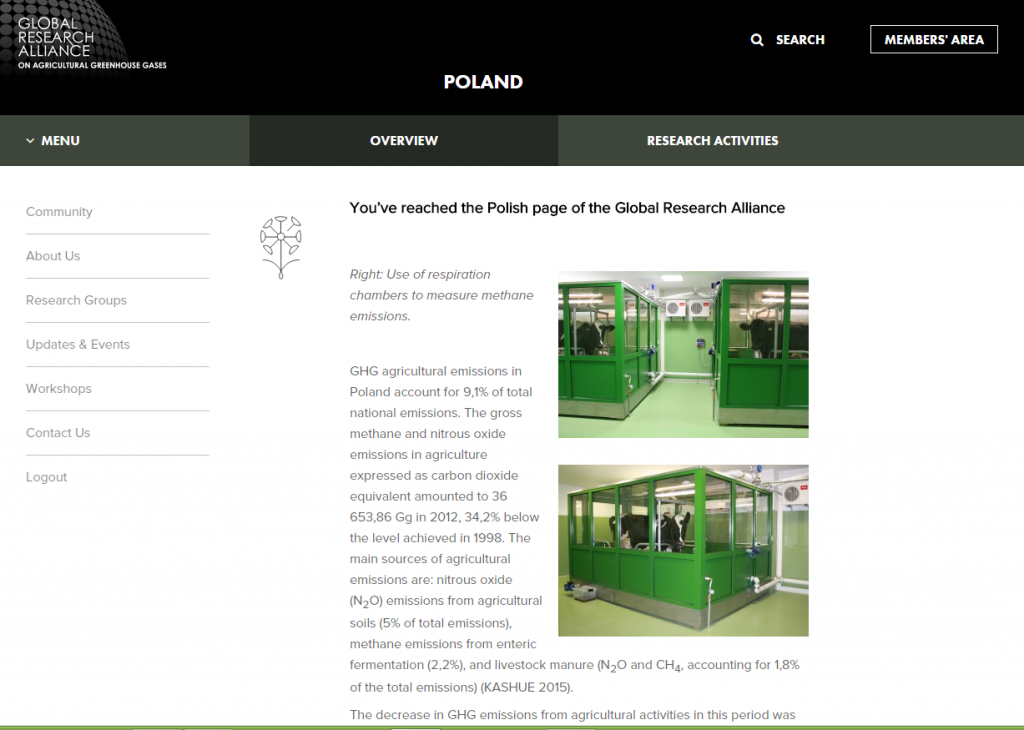
Call for proposals: ERA-GAS ERA-NET for Monitoring & Mitigation of Greenhouse gases from Agri- and Silvi-culture.
The aim of the ERA-NET ERA-GAS Co-fund is to strengthen the transnational coordination of research programmes and provide added value to research and innovation on greenhouse gas (GHG) mitigation in the European Research Area and in New Zealand.
The scientific scope of the present call for proposals addresses collaborative projects in the following four research themes:
Theme 1): Improving national GHG inventories and monitoring, reporting and verification of emissions
Theme 2): Refining and facilitating the implementation of GHG mitigation technologies
Theme 3): State of the art production systems that are profitable and improve food and forest biomass production while reducing GHG emissions
Theme 4): Assessment of policy and economic measures to support emissions reductions across the farm-to-fork and forest-to-consumer chain.
Pre-Proposals must be submitted via the ERA-Net ERA-GAS submission tool by 3rd of May 2016 14:00 CET. Visit https://www.submission-eragas.eu/call1 to download the call announcement and for more information.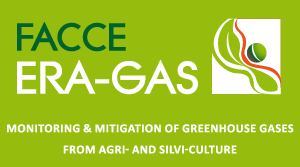
Reducing enteric methane for improving food security and livelihoods
A new brochure is now available on the collaborative project between the GRA and the FAO “reducing enteric methane for improving food security and livelihoods”. This project is identifying the best options to available to farmers now that can use to improve the productivity of their ruminant livestock and reduce the amount of enteric methane these animals produce.
Read the brochure to learn more about how this project is developing regionally appropriate packages of on-farm practices and interventions and understanding how these packages are best shared with farmers.

